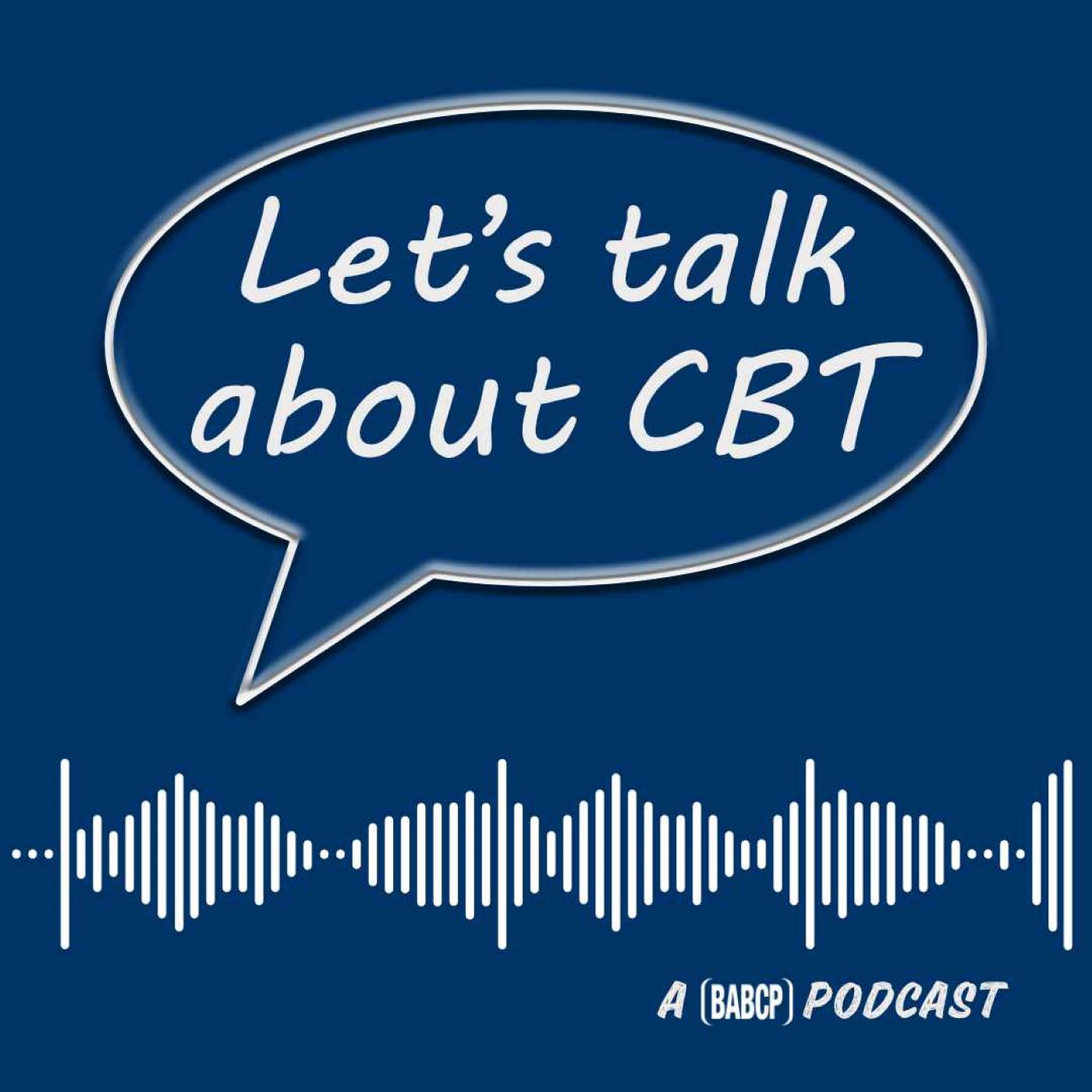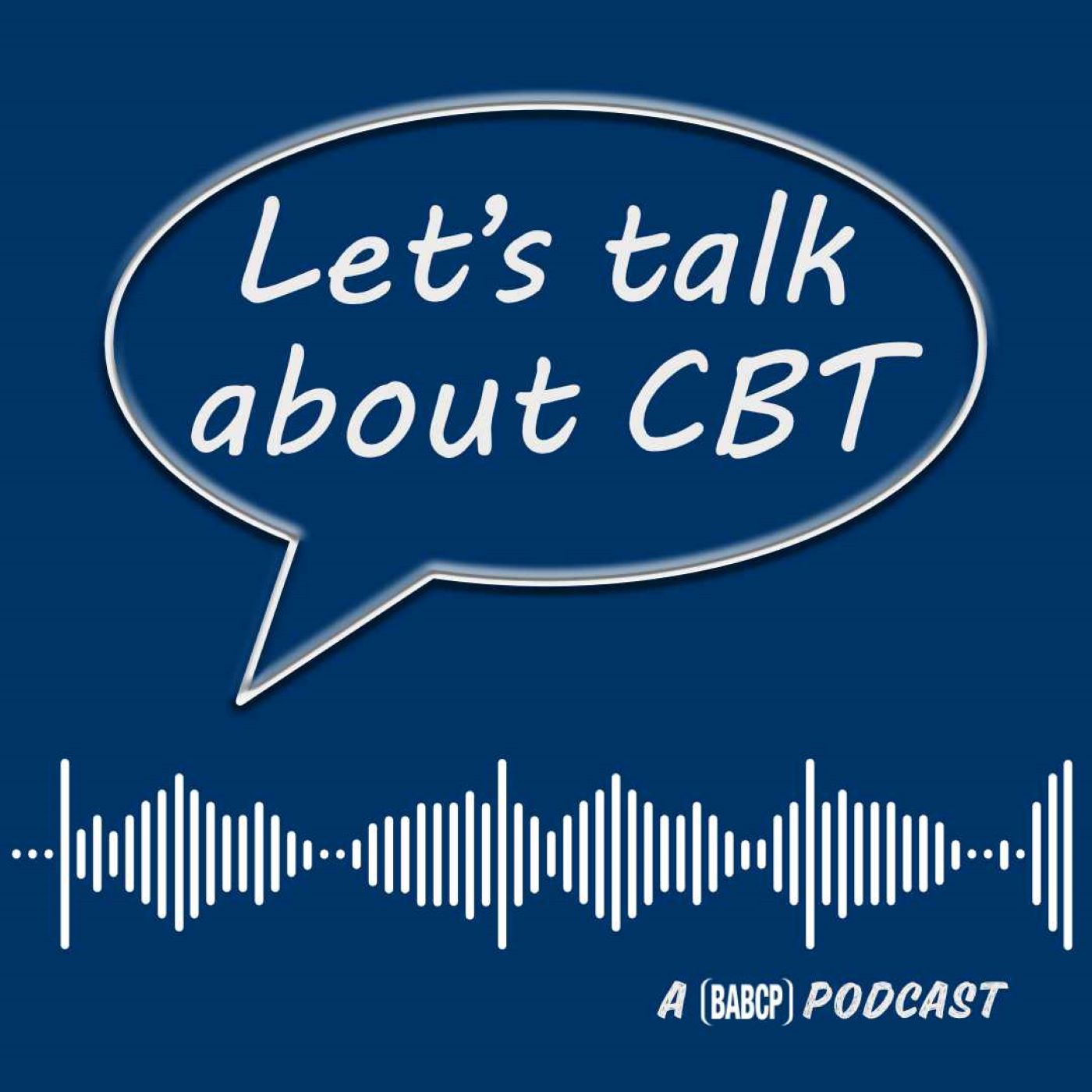Helping teenagers do more of what matters to them
Description
 How does doing more of what matters help teenagers with low mood and depression? And what can we all learn from this, particularly at the moment? Prof Shirley Reynolds speaks to Dr Lucy Maddox.
How does doing more of what matters help teenagers with low mood and depression? And what can we all learn from this, particularly at the moment? Prof Shirley Reynolds speaks to Dr Lucy Maddox.
Show Notes and Transcript
Podcast episode produced by Dr Lucy Maddox for BABCP
If you want to know more the following resources might be helpful.
Books
Shirley has written two books about depression in teenagers, one for teens and one for parents:
For parents: Teenage Depression: CBT Guide for Parents https://www.amazon.co.uk/Teenage-Depression-CBT-Guide-Parents/dp/147211454X
For adolescents: Am I Depressed and What Can I Do About It? https://www.amazon.co.uk/Am-Depressed-What-Can-About/dp/1472114531/ref=pd_lpo_14_t_0/260-4076808-4951665?_encoding=UTF8&pd_rd_i=1472114531&pd_rd_r=bd1ea151-b4d3-40bc-99bc-583aa3824613&pd_rd_w=xtKq9&pd_rd_wg=CFBxI&pf_rd_p=7b8e3b03-1439-4489-abd4-4a138cf4eca6&pf_rd_r=MFANFKSAD9RE92R6XS65&psc=1&refRID=MFANFKSAD9RE92R6XS65
Websites
BABCP website www.babcp.com
Register of BABCP accredited therapists https://www.cbtregisteruk.com/
These resources about child and adolescent mental health might also be useful
Young Minds https://youngminds.org.uk/
MindEd https://www.minded.org.uk/
Association for Child and Adolescent Mental Health https://www.acamh.org/
Other resources
Shirley is running a course with Future Learn from 1st week in June about adolescent depression – aimed to help parents and professionals understand and help young people who struggle with low mood: https://www.mooc-list.com/course/understanding-depression-and-low-mood-young-people-futurelearn
Have you seen the BABCP animation about what CBT is? Only 1 minute long and available here: https://www.youtube.com/watch?v=ZRijYOJp5e0
Photo by Daria Tumanova on Unsplash
Podcast episode produced by Dr Lucy Maddox for BABCP
Transcript
Lucy: Hi and welcome to Let’s Talk About CBT with me, Dr Lucy Maddox. This podcast is all about CBT, what it is, what it’s not and how it can be useful. Today I’m speaking to Professor Shirley Reynolds from the University of Reading about how doing more of what matters can help teenagers boost their mood, and how this might be particularly helpful for all of us to remember at the current time.
Shirley: The thing I’m really mostly interested in is understanding more about adolescent depression in order to help us really develop better treatments and better ways of preventing young people from developing depression. So that we can really try and divert them away from a path that can lead into a lifetime of problems with low mood.
Lucy: Fantastic. And at this time in particular when we’re all shutting doors a bit because of the pandemic and teenagers are shutting doors as well, what can your research tell us that might be helpful at this time in particular do you think?
Shirley: I think there are some general points and some more specific points. I think the general point is that one of the things we know, not just from our own research but from many people’s research is that when you’re a teenager, most teenagers are going to be incredibly attached to and reliant on having relationships with their friends, their peers.
The family becomes a bit less important, it’s not unimportant, but the importance of it becomes a little bit less and that’s replaced by a really, really strong focus on needing to be part of a social group. Being accepted by other people, contributing to things with your friends, being part of something bigger than yourself.
And so what that tells us then is that a period like now when young people simply cannot have those relationships in the normal ways, that this is a potential point of really massive stress for them and distress for them. And we need to try and support them; to maintain any relationships they already have, in whatever way is possible.
And what most parents are currently struggling with, but I think getting a handle on, is that currently that is going to be on a computer.
It’s not just young people, we all need these things. This is a lifelong thing for most people, but it’s a particular importance at that critical development period when we’re teenagers.
Lucy: So making sure that we’re supporting the young people in our lives to maintain contact with their friends in whatever way is possible.
Shirley: In whatever way is possible, absolutely. And accepting and understanding that it’s frustrating and difficult and anxiety provoking and that that’s true for everybody, parents, children, and everybody else.
There’s a degree to which we have to kind of let our normal expectations just be shifted around a bit and learn to live with that and be okay with that.
Lucy: Actually, just you talking about teenagers in particular made me think about that tension that can happen sometimes between teenagers really wanting to be independent and maybe family really wanting to comfort teenagers during this time. And sometimes that can be a really tricky balance to walk, can’t it, if you’re a parent who wants to offer comfort and your teenager is saying, “No, leave me alone.” Is there anything, from your point of view, that you would say about that?
Shirley: I think that’s absolutely right because the other task of being an adolescent or a teenager or growing up is to learn to be independent and to learn to do things on your own. And at the moment everybody is forced to spend 24/7 with their families and that exploration and getting out there and taking a bit of a risk and learning about yourself in the world is something, it’s very hard for teenagers to do at the moment. So they are going to need time to be separate and to be on their own.
And it is fine for them to tell you to back off and it’s inevitable that people will feel a little bit pushed away and maybe left out or maybe tempers will be frayed and there’ll be a bit more irritability. But again, I think that’s one of those inevitable challenges that there’s no right answer for this.
So I think that tension between needing support and also needing to be separate is really a massive struggle, especially for people who live in very small houses, don’t have outside space. So sharing bedrooms. I think trying to find a space for young people to call their own, for at least some of the time is going to be really important, if that’s at all possible.
Lucy: Yeah, really helpful. And helpful to remember that in the midst of trying to homeschool and all the rest of it as well actually, that to be somebody’s teacher and mum and seeing them all the time is not possible.
And some of the research that you’ve done that I found really interesting has been about valued actions. I wondered if you could say a little bit more about what valued actions are?
Shirley: Yeah, so this comes from the research we’ve done with teenagers with depression and low mood. What we see when somebody has depression or beginning to become depressed is that as we feel a little bit worse, what we tend to do – this is in normal life – is to take ourselves out of our normal social activities. So young people who have got problems with depression very often, nearly always, spend more time on their own than they would have previously.


















